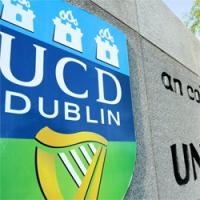LLM International Commercial Law
With the enormous growth in international commerce over the last few decades knowledge of international commercial law has become an essential element of legal practice in all major law firms. The programme is also especially relevant to those seeking opportunities in the commercial world. Members of staff in the Sutherland School of Law have engaged in major research in this area spanning the full range of international commercial law from the World Trade Organisation through competition law in the domestic, European and international contexts to the issues arising out of the complexities of regulation.
To understand and think critically about various facets of International Commercial Law;
To apply their knowledge and understanding of International Commercial Law to real and hypothetical factual situations;
To conduct independent research and write coherent, well-structured papers.
Careers & Employability
The LLM in International Commercial Law is highly regarded by employers and has been the basis for many successful careers across the world. It is particularly useful for students wishing to practise with specialist corporate law firms or wishing to work as an in-house legal adviser. Potential employers include A&L Goodbody, Matheson, William Fry and Arthur Cox.
Several UCD careers events are held throughout the year, including dedicated law careers fairs which are attended by top employers. For specific careers advice, the UCD Sutherland School of Law has a dedicated careers advisor on its academic faculty.
The Sutherland School of Law offers a wide range of modules for the Masters programmes. Modules of especial interest to those undertaking this programme include:
EU Competition Law builds on your prior knowledge of EU constitutional and EU economic law by critically examining how EU competition law governs particular actions of private market actors. It considers the rationale behind EU competition law and how this area of law fits in to the EU's economic order and philosophy. It goes on to explore and critique the substantive and institutional dimensions of TFEU Articles 101 (governing, amongst other things, cartels between firms) and 102 (governing abuses of dominant market positions). This module additionally considers the relationship between national and EU competition law, as well as the institutions active in enforcing EU competition law at national and EU levels.
Corporate Governance will cover both the legal and regulatory environment and the informational and market infrastructures which apply in Ireland and the wider EU. The objective of this module is to develop an understanding of the development of corporate governance and its importance to companies and their stakeholders. It seeks to provide a framework for analysing how regulations impact on corporate decision-making, ethics and planning. The module will investigate the processes of supervision and control within companies and determine what the primary aims of those processes should be. It will examine the regulations and norms which seek to ensure that directors act in the interests of shareholders or wider stakeholder groups as appropriate. It will examine both the theory and the reality of shareholder democracy. Throughout the module, consideration will be given to the important question of determining the appropriate form of regulation to achieve the desired aims of corporate governance.
International Commercial Arbitration is a study of the domestic and international law and practice of commercial arbitration.The course will cover: The Arbitration Agreement: form; scope and effect; the proper law of the arbitration agreement; giving effect to the agreement to arbitrate; litigating the subject matter of an agreement to arbitrate; staying litigation pending arbitration; frustration, repudiation and abandonment of arbitration agreements. The Arbitrator: appointment, replacement, removal; duties and powers; immunity from suit; ethical obligations and considerations. The Arbitral Proceedings: procedure and evidence; the ICC and other institutional rules of procedure; the proper law of the proceedings; the proper law of the dispute; separability and arbitrability of disputes; equity clauses and the lex mercatoria. The case stated. The award: formal and substantive requirements; reliefs and remedies; costs and interest. Challenges to an arbitral award: domestic and foreign awards; the Geneva and New York Conventions. Arbitration of international investment disputes; the ICSID system and rules. State involvement in arbitration. The UNCITRAL model law and the reform of arbitration law.
CIEL
The Comparative International and European Law (CIEL) programme is an exchange programme for registered full-time LLM students. The programme includes joint thesis supervision with academic colleagues at both the home and host institution. Upon successful completion students are awarded the CIEL certificate in addition to their LLM award.
Intakes
- Jan
- May
- Sep
Application Processing Time in Days: 20
Application Process
Minimum English Language Requirements
| English Level Description | IELTS (1.0 -9.0) | TOEFL IBT (0-120) | TOEFL CBT (0-300) | PTE (10-90) | |
|---|---|---|---|---|---|
| Expert | 9 | 120 | 297-300 | 86-90 | |
| Very Good | 8.5 | 115-119 | 280-293 | 83-86 | |
| Very Good | 8 | 110-114 | 270-280 | 79-83 | |
| Good | 7.5 | 102-109 | 253-267 | 73-79 | |
| Good | 7 | 94-101 | 240-253 | 65-73 | |
| Competent | 6.5 | 79-93 | 213-233 | 58-65 | |
| Competent | 6 | 60-78 | 170-210 | 50-58 | |
| Modest | 5.5 | 46-59 | 133-210 | 43-50 | |
| Modest | 5 | 35-45 | 107-133 | 36-43 | |
| Limited | 4 | 32-34 | 97-103 | 30-36 | |
| Extremely Limited | < 4 | < 31 | < 93 | < 30 |
Job Opportunity Potential
UCD Careers Network joins the dots between your time at University and your future career
If you are a UCD student based on the Belfield campus, or a recent graduate (up to two years after graduation), you can book a 20 minute 1-2-1 consultation with one of our Belfield based Career & Skills Consultants to:
- talk about your options
- get advice on an application
- prepare for interview
- cover anything else career-related
If you are a Smurfit Graduate School of Business student or recent graduate, you can make a 30 minute consultation appointment with one of the Smurfit Careers Network team, based on the Blackrock campus.
Current and recently graduated, UCD Graduate Researchers (PhDs and Research Masters students), can book a 60 minute appointment with a dedicated Career & Skills Consultant to discuss:
- Individual Career Planning
- Academic and non-Academic Career Options
- Job Applications
- Interviews and Presentations
PSW Opportunity
2 years
Admission Requirement / Eligibility Criteria
Graduate Taught Programmes
The normal requirement is a recognised bachelor’s degree at second class honours, grade one (2:1), or equivalent. Applicants should check the programme specific requirements as some degrees may require a higher standard for entry. For applicants who do not have the required minimum academic entry standard, a year-long qualifying course, such as a Higher or Graduate Diploma, may be available in some cases.
English Language Requirement
Graduate Taught and Graduate Research programmes in UCD are taught in English. Applicants must meet the minimum University English language proficiency requirements. In the case of IELTS Academic Version, a minimum score of 6.5 is required with not less than 6.0 in any strand. Please note, some courses may require a higher standard for entry. Please check the entry requirements of the course that you intend to apply for.
- Course Type: Full Time
- Course Level: Masters/PG Degree
- Duration: 01 Year
-
Total Tuition Fee:
21520 EUR
Annual Cost of Living: 10500 EUR
Application Fee: 50 EUR
Similar Programs
- MA Social & Political Thought at University College Dublin
- MSocSc Social Work, Welfare and Justice at University College Dublin
- MSc Politics & Data Science at University College Dublin
- MSc Education, Children & Youth at University College Dublin
- MSc Digital Policy at University College Dublin
- ProfMasters Social Work at University College Dublin

